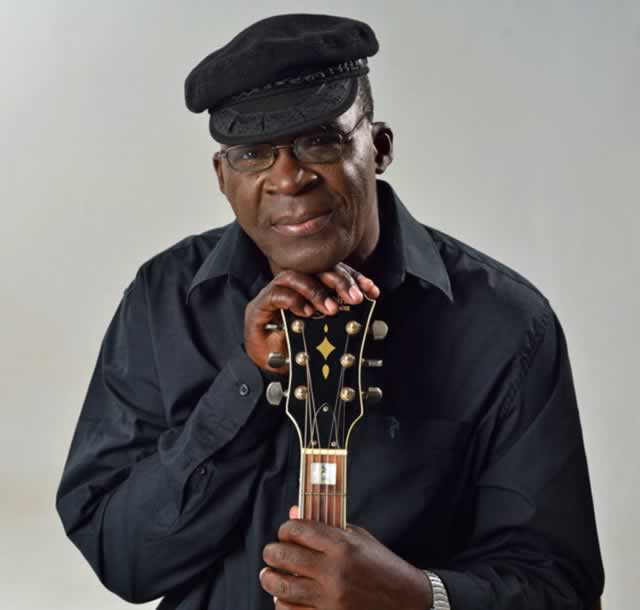Is a music policy possible?

Fred Zindi Music Column
It is now a year since the formation of the Ministry of Sport, Arts and Culture. We had campaigned hard for the establishment of such a ministry but we have since realised that the ministry seems to be focused on sports only.
It is a known fact that footballers earn more money than musicians.
So why spend more resources on those who are in a better income bracket than musicians?
Perhaps we should start the battle again and campaign for a stand-alone Ministry of Arts and Culture.
There is a lot which music can do to assist Zimbabwe’s economy and Zim-Asset.
Musicians are convinced that music can raise the economic profits of this country.
The presence of Zimbabwean music in the world is known and its influence is a worldwide reality.
However, the benefits deriving from this reality on Zimbabwe and its Zimbabwean creators is very poor.
The Bhundu Boys have been there and done it.
Oliver Mtukudzi has been inducted in the Hall of Fame in New York.
These few artistes have inspired a lot of musicians, but what does it mean for the economy and the rest of us?
There is need to reconsider the whole process of professional entities and associations and the initiatives which must be taken in order to revive the industry.
The first step is to give direction to the definition of a music policy.
This would-be lucrative music industry has been marred by a lack of professional managers, promoters, publishers and producers.
We appreciate the efforts of members of the media who have always been there to support our cause.
However, the local media has only a few journalists who are adequately equipped with music knowledge and with the moral authority to write or discuss music.
Instead of writing about real issues affecting musicians, a lot of young journalists are preoccupied with irrelevant things such as how skimpily dressed a female musician was or the meaning of “Kuma Bhebhi”.
Is that what the readers really want to know?
One needs to focus on the confusion and chaos among music’s various stakeholders.
A host of young artistes, have recently sprung up in huge numbers due to rising unemployment in the country with the hope of striking it big and becoming the next “celebrities” at the expense of well established and talented older artistes.
A guy like Moses Kabubi of Summer Breeze cannot be compared with Killer T or Dadza D I terms of musical experience and he is not in music to catch the limelight.
However, most of these young musicians before even learning the basic chords on their instruments, jump on the bandwagon without even a clear understanding of how the business works.
They do not have the experience of their seasoned counterparts and they end up being exploited.
A good example is in the recent rise of the so called Zim dancehall artistes. The only experience several of them have had is going into a recording studio and singing live in front of a small crowd.
If you try to give them advice, they will tell you that is old fashioned.
This is where we expected the new ministry of Sport, Arts and Culture to play a crucial role by giving direction to the music industry.
In particular, a review of initiatives, festivals markets, recording studios, importation of musical equipment, campaigns against the use of drugs and business training would be helpful towards the establishment of dynamic networks.
Political will to implement music policies becomes essential.
To give you an idea of this political will the following list could offer opportunities to implement a successful music policy:
Formal and informal training of musicians in order to perfect their art.
Building of cultural centres where musicians can rehearse and perform in both cities and villages.
Formation of a strong musicians’ union.
Crafting of legislation against music piracy.
Building of recording studios for talented musicians who cannot afford to pay commercial studio rates.
Establishment of music scholarships.
Arranging musical workshops and music festivals.
Training of local youths to manufacture musical instruments.
Creating of musical markets within and outside Zimbabwe, and assisting musicians with the importation of musical equipment.
Without elaborating on these ideas, it can be seen that with the right political will, within a year, if these ideas were followed, most of them would have been implemented and the music industry would have greatly improved.
In Jamaica, the government built recording studios where talented youths would record for free and only when they made it, would be asked to donate back to the communities which helped them.
This policy worked and still does.
In Zimbabwe, there are very few institutions which support music as the perception is that music is employment for vagrants and uneducated people only.
This is far from the truth and that kind of thinking is what is slowing down advancement in the industry.
The University of Zimbabwe is the oldest higher educational institution in the country, yet since its establishment in 1955, it does not have a department of music.
The closest department to music is the department of Theatre Arts because it cannot avoid including a bit of music in its curriculum.
In the past twenty years, I have written proposal after proposal to help the institution to establish a department of music, but my proposal was thrown out on several occasions.
Africa University where I worked for a year, was quick to accept my proposal and there are thriving music departments in the Faculty of Humanities and The Faculty of Education.
Midlands State University has followed suit.
There are eleven more universities in the country but none of them offers degrees in music.
How then can we train musicians if universities are reluctant to do so?
We are lucky to have institutions like Zimbabwe College of Music and Music Crossroads Academy in Harare as well as Kwanengoma College in Bulawayo which offer some music programmes. If universities were offering the training perhaps there would be no need to import musical instruments into the country as students in universities would be trained in instrument manufacturing.
Bob Nyabinde has been manufacturing guitars which meet world standards for a long time.
Why has he not been approached and given resources to teach unemployed young people to do the same so that they can sustain themselves?
The politics of music is tricky. Perhaps the government does not want to get involved because it costs money to put the required resources in place. What I know, however, is that if the required resources are provided, a lot of musicians would be empowered and the economy would also improve.
Minister Walter Mzembi has suggested an ambitious project of hosting world cup in Zimbabwe.
If someone in government thinks that is possible, it is therefore easier to build music venues, import musical equipment and organise cultural centres.
With a music policy in place, the government will assist in protecting the musicians through making sure that they know their rights, thus avoiding exploitation by greedy promoters.
Feedback: [email protected]










Comments